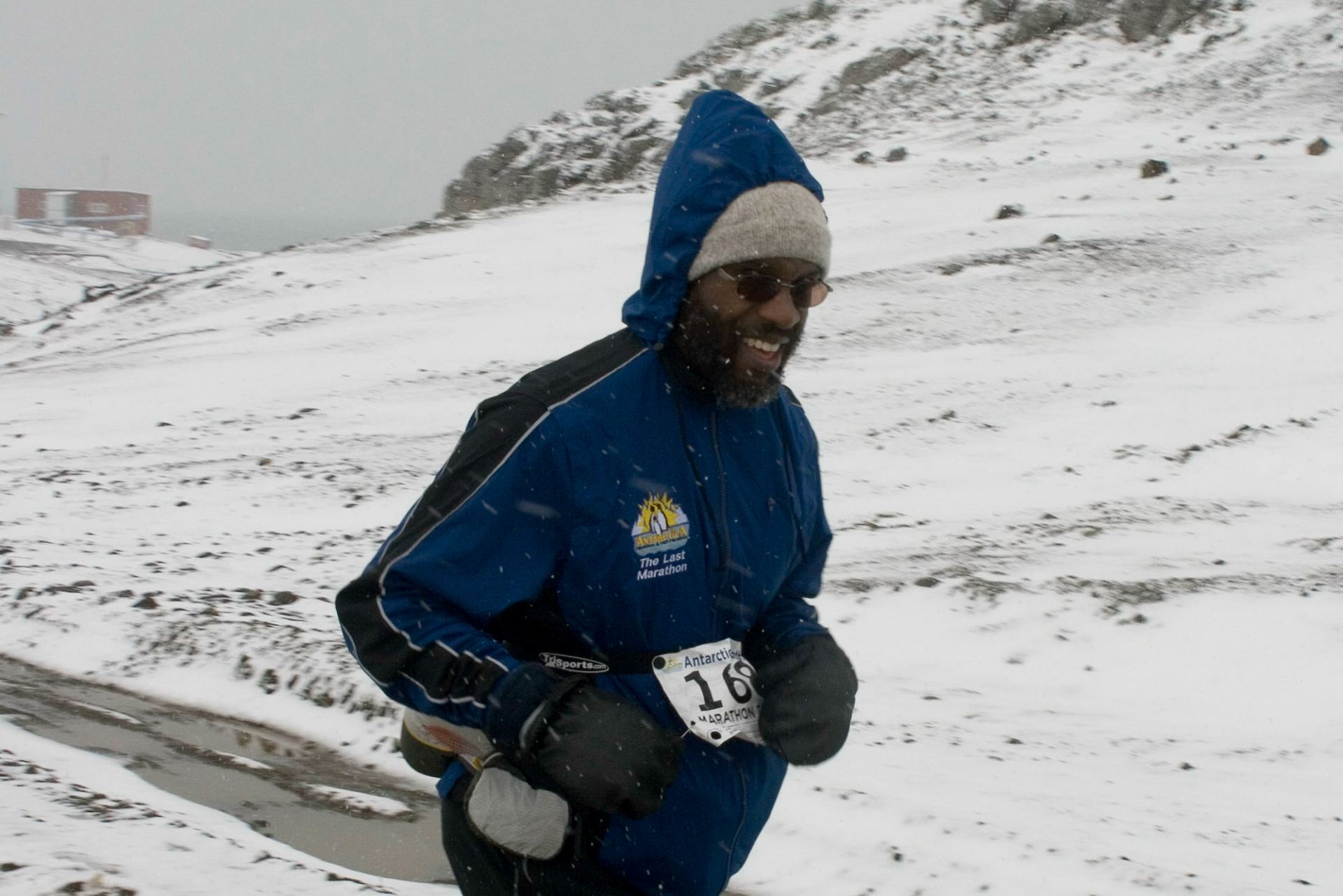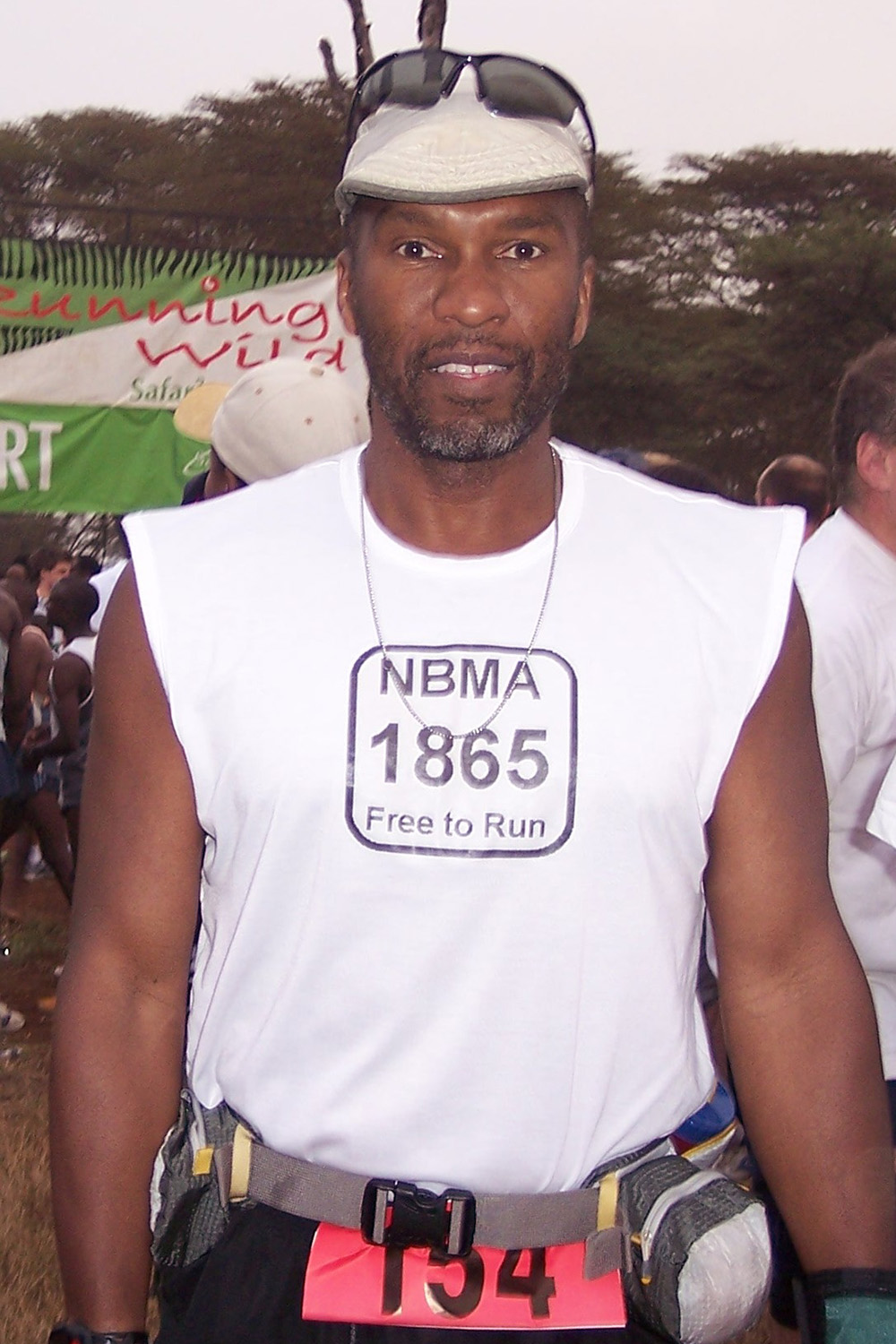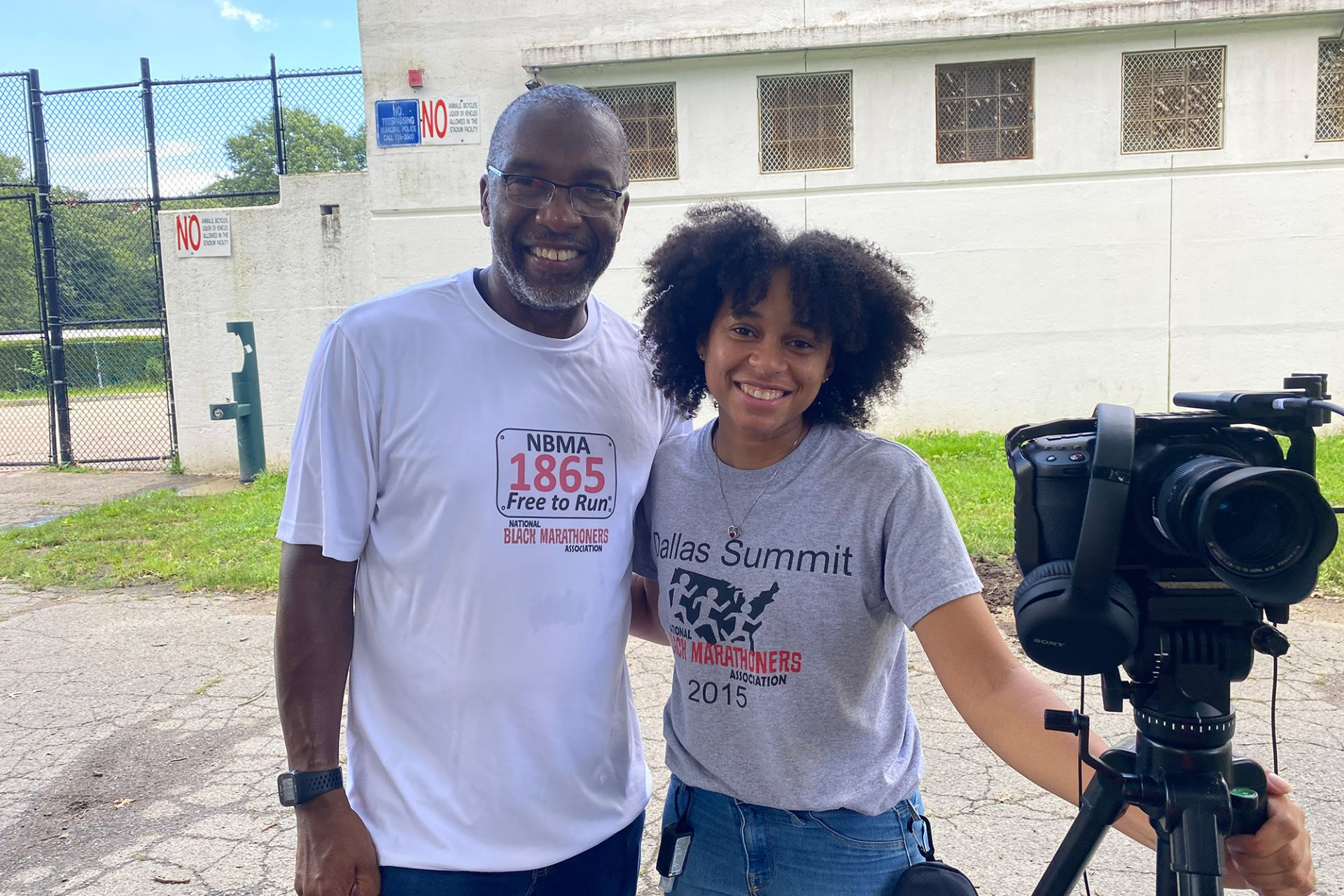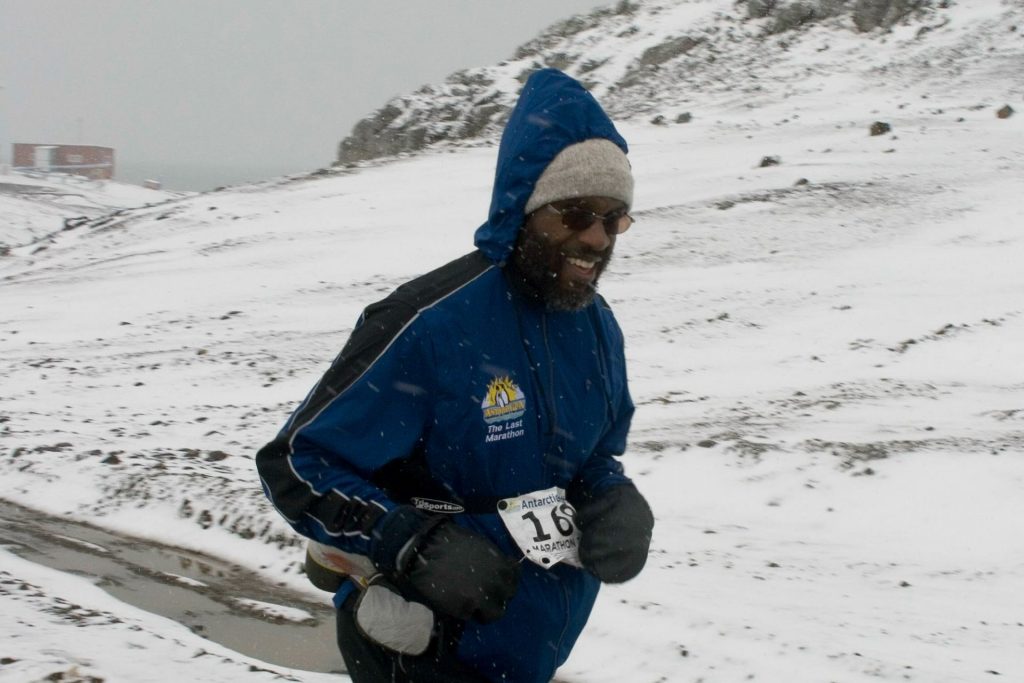
In 43 years of journaling his daily running, Tony Reed MS’92 has logged more than 48,750 miles — just short of twice the distance around the Earth. But his story goes beyond distance, longevity and honors. He has become an inspiration for runners of all ages and a voice for the prominent place of African American distance runners in the sport’s history.

Reed has completed a “hat trick” of the sport’s elite accomplishments. The 67-year-old amateur athlete has run a marathon on all seven continents — the first Black runner from any nation to accomplish that feat — while also completing marathons in each of the 50 U.S. states and finishing more than 100 marathons (132 as of this article).
Reed is also the elder statesman for the African American distance running community. He is executive director and co-founder of the National Black Marathoners Association and has written several books and articles about distance running.
Reed grew up in St. Louis as part of an active, athletic family. His health came to the forefront when he was diagnosed with a pre-diabetic condition at age 8.
“The doctor said that by the time I became a teenager … I would probably have to start taking insulin,” Reed said.
Through his school years, Reed swam, biked and played sports — including four years of high school soccer. High school came and went without the need for insulin. In college, Reed read books about the impact of fitness on health and preventing disease written by Dr. Kenneth Cooper, who coined the term “aerobics” and founded the Cooper Aerobics Institute in Dallas.
“In 1976 I made a lifetime goal of running or walking 3 miles a day.” Reed said. “In 1979, I started a running journal, and in that time, I’ve run more than 48,500 miles, which averages out to a little over 3 miles a day.
“I’m 67, and I’m still not on insulin.”
After graduating with degrees in math and business from Webster University in Missouri, Reed became a computer programmer and moved to Texas, where he encountered runners competing in the first Fort Worth Cowtown Marathon. He was inspired to begin training and ran the Cowtown 10K, and the following year, he completed his first marathon.
“The fact that the Smithsonian wanted my running clothes just took my breath away. It is something that I couldn’t imagine.”
Tony Reed MS’92
While preparing for the Cowtown, some runners told Reed he should try shorter events because he was physically too big to compete in marathons. He also was told that if he couldn’t finish a marathon in under four hours, he shouldn’t even be at the starting line.
“I’m thinking to myself, ‘They don’t know anything about me. They don’t know anything about my training,’” Reed said. “I don’t like being limited to a box that people want to put me in.”
He finished that first marathon in 3 hours, 59 minutes, 23 seconds. Soon after, he started running the Dallas Marathon and estimates that he’s now run both races 20 times each.
Reed completed an MBA at Abilene Christian University while working as a computer programmer for a variety of Dallas-area companies, including Texas Instruments. In 1992 he earned a master’s in accounting from The University of Texas at Dallas.
In completing his seven continental marathons, Reed ran a race that included a section of the Great Wall of China and ran an entire marathon on ice and snow in Antarctica with spikes attached to his running shoes. He finished the last of the seven in Kenya in 2007.
“When I finished that last marathon, I just started crying,” Reed said. “The pressure was off, and I knew I had just made history.”
Runner’s World magazine profiled Reed in February 2008 as the first Black distance runner to complete a marathon on all seven continents. In 2012 the Smithsonian National Museum of African American History and Culture asked him to donate his running clothes from Kenya to the museum.
“The fact that the Smithsonian wanted my running clothes just took my breath away,” Reed said. “It is something that I couldn’t imagine.”
Now retired from his job but not from running, Reed continues to log miles daily and completes a few marathons each year. In 2022 he was inducted into the Road Runners Club of America Distance Running Hall of Fame.
Last year he produced and directed the documentary “Breaking Three Hours: Trailblazing African-American Women Marathoners.” The award-winning film profiles women who are members of an elite group of marathon runners who have broken the sport’s three-hour barrier. Reed plans to premiere “Breaking Three Hours” in Dallas in January.

